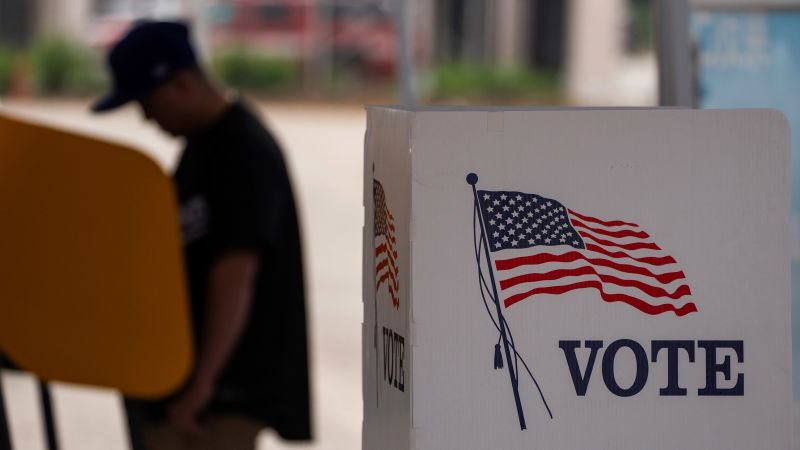
CNN
—
California voters will decide this election whether to increase the state’s minimum wage to $18 an hour, which would be the highest in the US.
The ballot measure, known as Proposition 32, calls for raising the threshold to $17 for the rest of 2024 and then to $18 in January for employers with more than 25 workers. Smaller employers would have to pay a minimum of $17 next year and $18 in 2026. It will be adjusted for inflation thereafter, though increases would be no greater than 3.5% a year.
Raising the minimum wage to $18 would put roughly $3,000 more a year in the pockets of workers who are paid at that threshold. An estimated 2 million workers would be affected.
Currently, the Golden State’s minimum wage is $16 and is set to rise to $16.50 next year.
Some 40 localities have minimum wages that are higher than the state threshold, including six that are greater than $18.
California has been among the more aggressive states when it comes to hiking the minimum wage. It was the first state to pass legislation raising the threshold to $15, which took effect in 2022 for larger employers and the following year for smaller ones.
Plus, as of this past April, nearly half a million workers at large-chain fast food restaurants are being paid at least $20 an hour. And a minimum wage law for health care workers, which will gradually raise the hourly pay of roughly 365,000 employees to at least $25, started taking effect in October.
Like most minimum wage debates, Prop 32 has attracted an array of supporters, such as labor organizations, who say the raise is needed to keep up with the cost of living, as well as opponents, including restaurant and business groups, who warn of layoffs and price hikes if the measure is approved.
Support among voters may be slipping. Some 44% of likely California voters said they would vote yes in an October poll conducted by the Public Policy Institute of California, down from 50% in September. Another 54% said in the latest poll that they’d vote no, up from 49% in September.
Arguments for and against an $18 mininum wage
Anti-poverty advocate and wealthy entrepreneur Joe Sanberg is behind the push to raise the state’s minimum wage to $18 an hour.
“It’s personal for me,” Sanberg told CNN. “My mom raised me by herself, and we lost our home to foreclosure when I was a teenager. I saw firsthand how hard it is for single parents in California to make ends meet.”
Sanberg argues that a higher minimum wage would help the economy because workers would have more money to spend. He pointed to a recent report on the minimum wage hike for fast food workers released by the Institute for Research on Labor and Employment at the University of California, Berkeley. The report found that the policy raised average hourly pay by 18% for the workers, 90% of whom previously earned less than $20. Also, employment remained steady across the industry and prices rose by 3.7%, or 15 cents for a typical $4 hamburger.
While increasing the minimum wage to $18 will have less of an impact, it will be helpful for the 2 million workers who will see a raise, said Enrique Lopezlira, director of the low-wage work program at the institute.
“At least, [the increase] will help restore some of the purchasing power that they’ve lost from inflation over the last couple years,” Lopezlira told CNN, noting that most low-wage workers are adults taking care of families.
In California, a single adult with no kids would have to make a little more than $27 to cover the costs of basic needs, while two working parents of one child would each have to earn just over $26, according to the MIT Living Wage Calculator.
Opponents, however, warn that approving the ballot measure would force employers to raise prices, cut workers or reduce their hours.
“When you’re looking at anybody’s budget – a small business or a larger business – there’s only so many places that they can absorb the costs,” Jennifer Barrera, CEO of the California Chamber of Commerce, said on a recent chamber podcast. “That’s especially true, of course, for a smaller business, who is operating on probably thinner margins sometimes.”
Typically, in the Golden State, minimum wage increases are decided by state or local lawmakers, not voters, California Restaurant Association CEO Jot Condie said on the podcast.
“In that process … the interests of the workers and the impacts on employers are taken into consideration,” he said. “They’re usually arriving at a number that most of the time nobody’s happy with, but they’re considering the important impacts on the broader economy to avoid any turbulence in employment growth or inflation and so forth.”
The most recent statewide increase, which was signed in 2016 by Democratic Gov. Jerry Brown, gradually raised the minimum wage, giving employers the opportunity to adjust, Condie said.
“A $1.50 spike, in one shot, if this were to pass, is going to be devastating for employers, and ultimately, it will result in price increases,” he said.





